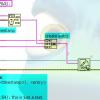-
Similar Content
-
- 1 reply
- 3,354 views
-
- 30 replies
- 17,849 views
-
- 7 replies
- 9,243 views
-
- 1 reply
- 6,479 views
-
Create a pull right menu for LVOOP Classes property nodes
By Reds27,
- property node
- pull right
- (and 2 more)
- 2 replies
- 4,168 views
-





Recommended Posts
Join the conversation
You can post now and register later. If you have an account, sign in now to post with your account.